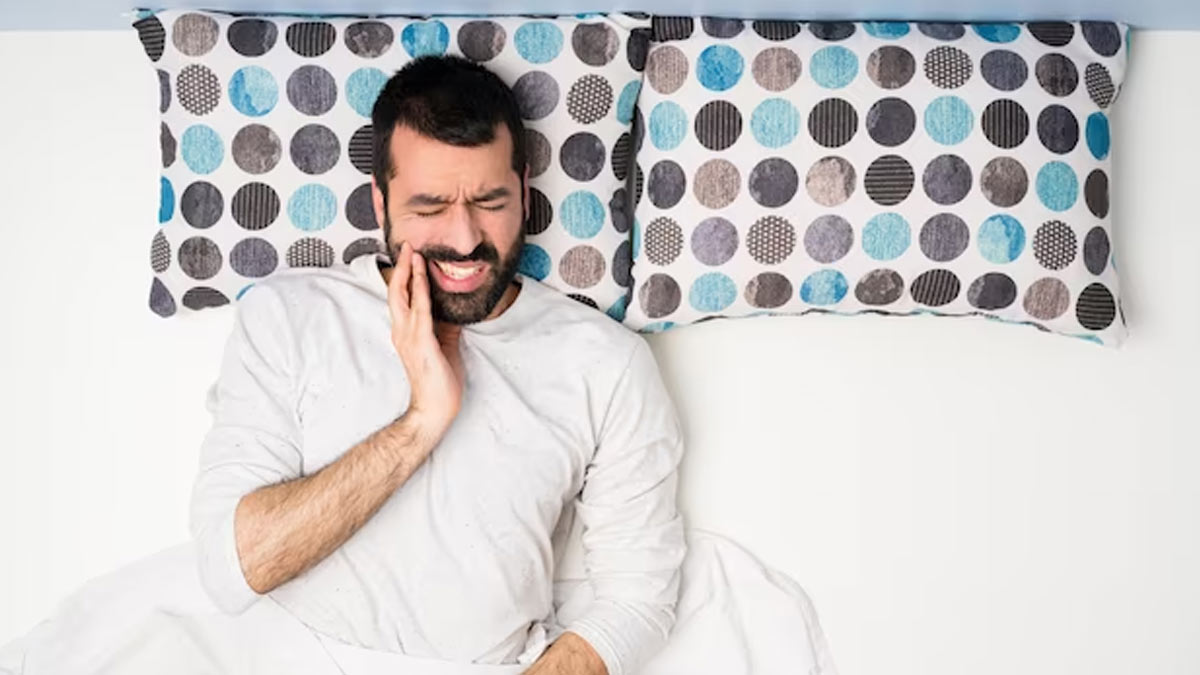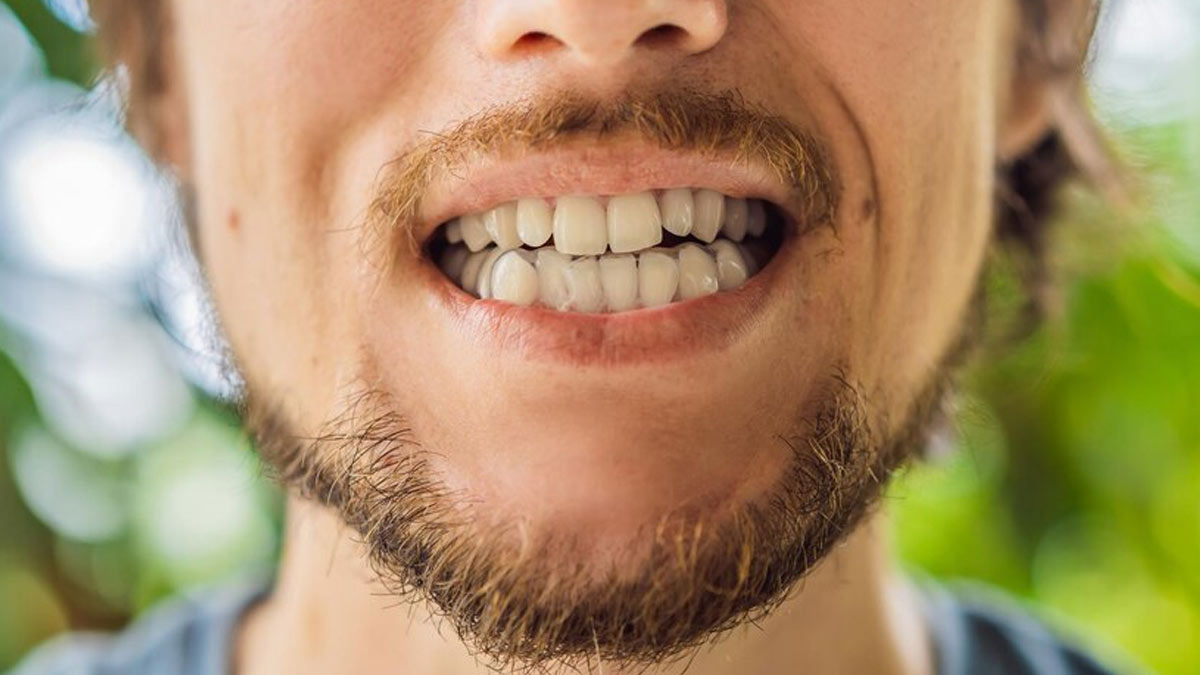
Sleep is a vital aspect of your overall well-being, and its quality can have a profound impact on your daily life. While most people associate sleep with rest and rejuvenation, it may come as a surprise that the condition of your teeth and mouth can reveal valuable insights about the quality of your sleep. The close relationship between oral health and sleep quality has been recognised by experts, highlighting the importance of addressing sleep issues for maintaining a healthy mouth. To explore what your teeth and mouth can tell about your sleep quality, we spoke to Dr Nihal Yadav, BDS, Amayra Dental Clinic, Kaushik Enclave, Burari, Delhi and Former Resident, Deen Dayal Hospital, Hari Nagar, Delhi.
Here’s What Your Teeth and Mouth Tell About Your Sleep Quality
Teeth Grinding
"Teeth grinding, also known as bruxism, is a common oral health issue that can be an indication of poor sleep quality," said Dr Yadav. A cross-sectional study conducted among Dental Students in Saudi Arabia published by the International Journal of Dentistry found that poor sleeping pattern is an important factor among those who reported sleep bruxism.

"Many individuals grind their teeth unknowingly while asleep, which can cause excessive wear and tear on the tooth enamel, leading to tooth sensitivity, fractures, and jaw pain," said Dr Yadav. He stated that chronic bruxism is often linked to sleep disorders, such as sleep apnoea or restless leg syndrome. Seeking professional dental advice and addressing the underlying sleep issues can help alleviate teeth grinding and protect your oral health.
Also Read: Expert Tips To Stop Sleep Bruxism
Dry Mouth
"Waking up with a dry mouth can be a sign of a sleep disorder or mouth breathing during sleep," said Dr Yadav. He added that breathing through the mouth instead of the nose can lead to decreased saliva production, resulting in a dry and uncomfortable mouth.
"Moreover, certain sleep disorders, such as sleep apnoea can contribute to dry mouth symptoms. If you frequently wake up with a parched mouth, it is advisable to consult a healthcare professional to identify any underlying sleep problems," he added.
Snoring
"Snoring is a common phenomenon during sleep and can be more than just a nuisance. It is often associated with sleep apnoea, a serious sleep disorder characterised by repeated interruptions in breathing during the night," said the doctor.

"Snoring occurs when the airway becomes partially blocked, causing vibrations in the throat tissues. These vibrations can contribute to inflammation and an increased risk of gum disease," he added.
Temporomandibular Joint Disorder
"TMJ connects the jawbone to the skull and allows for smooth movement of the jaw. Sleep disturbances and poor sleep quality can contribute to the development or worsening of TMJ disorders," he said.
Also Read: TMJ Disorder: Lifestyle Changes To Relieve TMJ Pain
He added that TMJ disorders often manifest as jaw pain, clicking or popping sounds when opening or closing the mouth, and difficulty in chewing. "Addressing sleep issues and seeking appropriate dental care can help manage TMJ disorders and improve sleep quality," he added.
Conclusion
The condition of our teeth and mouth can provide valuable clues about the quality of our sleep. If you experience any of these oral health issues, it is recommended to consult with both a dental professional and a sleep specialist to diagnose and treat any underlying sleep disorders. By taking proactive steps to improve sleep quality, you can enjoy better oral health and more restful sleep, leading to enhanced overall health and quality of life.
[Disclaimer: This article is for informational purposes only. Consult a doctor to get a thorough diagnosis and treatment as per your health needs.]
Image Credits: freepik
How we keep this article up to date:
We work with experts and keep a close eye on the latest in health and wellness. Whenever there is a new research or helpful information, we update our articles with accurate and useful advice.
Current Version